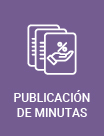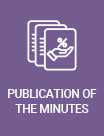Seminario de Microeconomía Aplicada - Free-Riding Yankees: Canada and the Panama Canal
El seminario de Microeconomía Aplicada del Banco de la República es un espacio para discutir trabajos en progreso en las diferentes áreas de la microeconomía aplicada como economía laboral, organización industrial, economía de la salud, economía agrícola, economía de la educación, desarrollo económico, crimen, economía pública, medio ambiente, economía regional y urbana, entre otras.
Mateo Uribe: es profesor asistente de la facultad de economía de la Universidad del Rosario. Mateo es PhD en economía de la Universidad de Maryland y economista de la Universidad Eafit. Sus intereses de investigación son historia económica, Economía Política y desarrollo económico.
Resumen del documento: We study the impact of the Panama Canal on the development of Canada’s manufacturing sector in the years from 1900 to 1939. Using newly digitized county-level data from the Census of Manufactures and a market-access approach, we exploit the plausibly exogenous nature of this historical episode to study how changes in transportation costs influence the location of economic activity and productivity dynamics. Our reduced-form estimates show that lowered shipping costs led to greater market integration of marginally productive Canadian counties with key markets both inside and outside of Canada. This development permitted the reallocation of production activity to places whose production levels had been inefficiently low before the Canal opened. A shift from the 25th to the 75th percentile in terms of gains in market access brought about by the opening of the Canal led to a 9% increase in manufacturing revenues and input expenditures. Productivity rose by 13%. These effects persist when general equilibrium effects are considered: the closure of the Canal in 1939 would have resulted in economic losses equivalent to 1.86% of GDP, chiefly as a result of the restriction of the country’s access to international markets. Altogether, these results suggest that the Canal substantially altered the economic geography of the Western Hemisphere in the first half of the twentieth century.
Tiempo de exposición: 1:30 p. m. a 3:00 p. m.














.png)




































